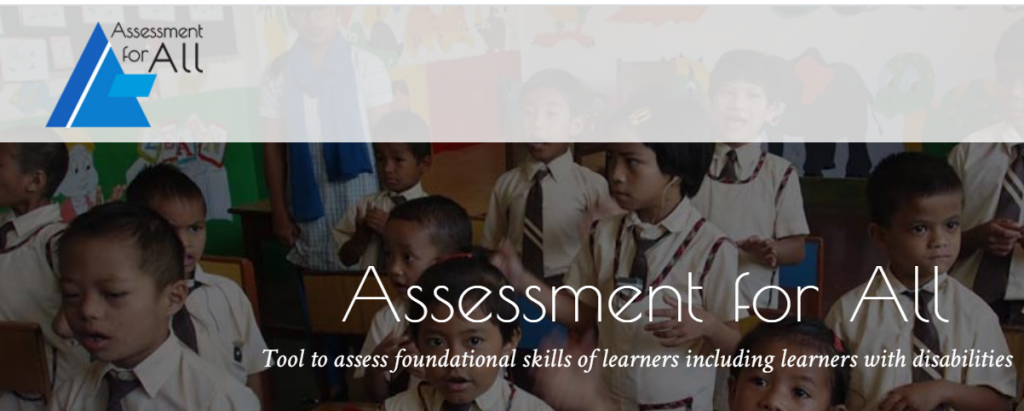Assessment for All (AfA) – An Inclusive Assessment Tool
To read more about the AFA Tool, download the following document in PDF format ….
The latest census (2011) revealed that in India, 2.1% of the population experiences some disability; of which 45% are illiterate. Further, 600,000 children aged between 6 and 13 years are out of school. Learning levels of these children who are in the school or out of school remain unknown since various national level surveys were not equipped to assess the learning levels of children with disabilities (CwDs), and there were no assessment programmes that report on their progress or ensure their meaningful inclusion.
To address this concern and meet the various National and International commitments and recommendations, Assessment for All (AfA) Tool is developed by Pratham in India. The AfA tool assesses learning levels of children aged 6-14 years on their foundational skills in literacy and numeracy skills. These skills involve the child’s ability to make sense of letters, words, and numbers that are presented to them.
Purpose of Developing AfA tool
- To holistically measure children’s development in foundational skills
- Gather cohesive and ongoing data and evidence about the children’s learning
- Develop a holistic, rigorous, open source instrument that is feasible and easily adapted to different national and cultural contexts
- Measure foundational literacy and numeracy skills
- Facilitate flexible learning opportunities based on child’s learning level
The AfA Tool comes in a toolkit which comprises of,
- Assessment tool in various Indian languages
- Instruction Manual
- Adaptation Guidelines
- Material Kit
- Data Collection Format
Adaptations in AfA Toolkit
The following adaptations have been made in the toolkit,
- To cater to the needs of the children with visual impairment, the tool has been developed in Braille script and with that appropriate font size and colour contrasts have been selected.
- For children with hearing impairment or deafness, a series of videos has been created in which all the instructions related to each task have been recorded in sign language. In addition, subtitles are also provided in the videos so they also have an option of reading the script and understanding what is expected from them.
- For learners with deaf-blindness, the toolkit also includes number cards, letter cards, number strips and related material, all in tactile form.
- Lastly, for children with cognitive disabilities, the instructions for each task have been framed in simple and short sentences, in order for them to grasp and act upon them.
The adaptations in the assessment tasks have been developed in a manner that the integrity of the task is preserved, at the same time providing opportunities to children with disabilities to showcase their abilities through means that are accessible to them. The tasks have been adapted for CwDs based on the Universal Design for Learning (UDL) principles and been reviewed for all children, hence the tool has potential to be used to assess children with and without disabilities at the same time.
Here’s the link to know more about the AfA Toolkit, www.assessmentforall.org
